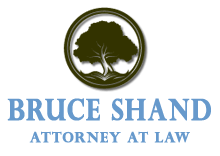Estate Planning No-No’s In Utah
If you wish to ensure that your estate does not fall prey to predators, creditors or taxes, keep reading to be sure you’re not committing the five cardinal sins of estate planning.
Just as it’s important to know what to do, it’s vital to know what NOT to do. Take estate planning for example. It takes a great deal of training to know what to do to best plan and structure an estate plan. That’s why you consult competent and experienced legal counsel. And knowing what NOT to do is part of that planning.
Maybe you’ve yet to start and maybe you’ve been working with an estate planning attorney for some time and piecing together some foolhardy designs. Either way there are some basic types of blunders that can befall anyone not wary enough to look for them.
CNBC compiled a short list of blunders well worth your consideration in a recent article titled “The 5 Biggest Estate-Planning Blunders”
- Picking the wrong people will make the worst of your plans, whether because they are not dedicated, not capable or even not trustworthy. You need to ensure that only the right people hold your durable power of attorney or serve as executor or trustee.
- Leaving the wrong assets to your estate rather than passing them outside of probate. For example, do not leave an IRA to your estate. Anything with a beneficiary designation can generally do half the work for you and be passed outside of probate (and outside extra taxation), so long as you use it correctly. This leads naturally to 3:
- Failing to name your beneficiaries and keep them updated. With an ex-spouse listed on an IRA, you’ll accidentally leave it to them, and that’s just one poignant example.
- Failing to make your end-of-life medical decisions though a health-care directive. This is one of the easiest to put off because it can be amongst the most difficult to think about – incapacity, feeding tubes, and death. However, not having put a decision to paper often means leaving it to the hospital’s discretion or forces your family to decide (and potentially argue).
These are a few (of many) potential blunders and examples of what not to do. There is much to think about of course, and much more NOT to do. In the end, it all depends more on what your actual goals are. One more thing not to do: don’t fail to invest the time to figure out what you ought to do.
Reference: CNBC (April 14, 2014) “The 5 Biggest Estate-Planning Blunders”










Leave a Reply
Want to join the discussion?Feel free to contribute!